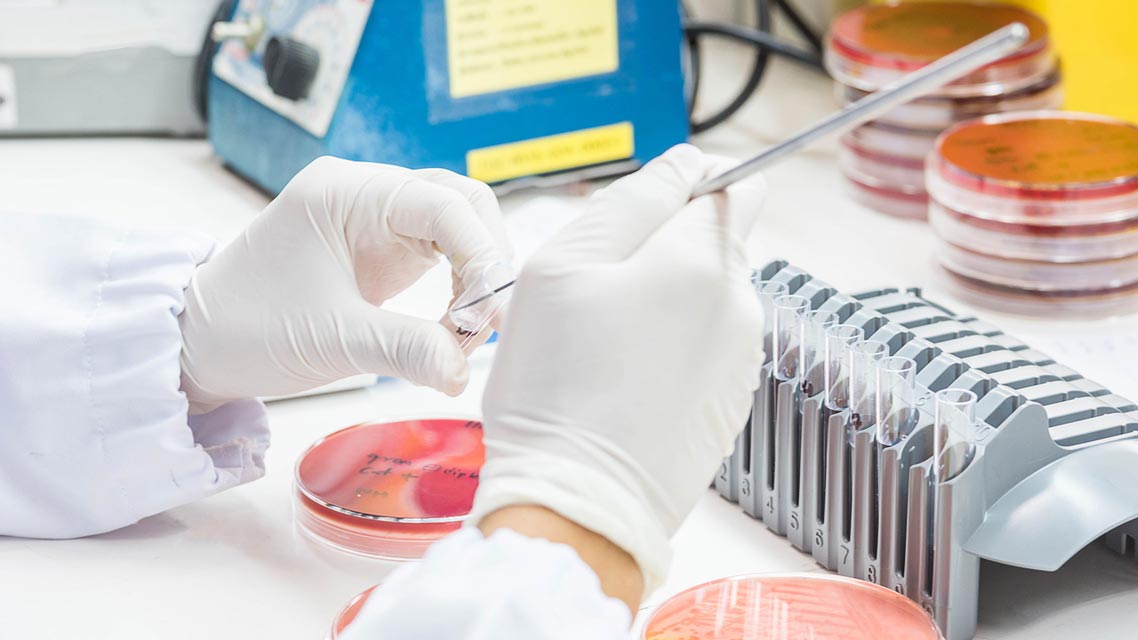What Bacteria is Ashwagandha Effective Against?

Growing evidence indicates that many bacteria that cause infections in humans have developed resistance to multiple antibiotics, making new herbal antimicrobial agents even more important. In recent lab experiments, whole-plant extracts of ashwagandha were shown to be effective against a number of gram negative and gram positive bacteria that can cause serious illness:8
- Staphylococcus aureus. These gram positive bacteria can cause cardiac, skin, urinary and respiratory infections, meningitis, and toxic shock syndrome (TSS). Methicillin and oxacillin-resistant S. aureus is referred to as MRSA and ORSA, and the infections they cause are difficult to treat.8, 27
- Barcillus subtilis. A gram positive bacterium that can cause food poisoning; can survive heat of cooking.8, 28
- Escherichia coli. Gram negative bacteria that cause gastroenteritis and bladder, kidney, urinary tract infections.8, 28
- Pseudomonas aeruginosa. Although this bacterium rarely causes illness in healthy people, people with weakened immune systems are at increased risk of pneumonia, urinary tract, and systemic blood infection (sepsis). P. aeruginosa infections such as meningitis, sepsis, and pneumonia are all associated with very high mortality rates.8, 28
- Bordetella pertussis. The cause of the once-common serious childhood illness known as whooping cough, this gram negative bacterium has been making a comeback since the 1980s. Although the vaccine introduced in the 1940s helped start an over 80% decrease in cases, an increasing number of cases have been reported — over 13,000 in 2008 alone. CDC officials suggest that this increased number of reports may in part be due to improved ability of clinicians in diagnosing the condition. However, they caution that many cases of this potentially fatal disease go unrecognized.29, 30
- Leishmaniasis. This parasitic disease is transmitted via sandfly bites. There are many species of the one-celled organisms transmitted by the female sandfly. Animals are typically affected more than humans (especially dogs), but there are epidemics of the disease in countries such as Afghanistan and India and periodic outbreaks in the United States (in Oklahoma and Texas). It is believed that up to 1% of the U.S. military have been infected with this disease in the ongoing wars in the Middle East. Symptoms can range from skin lesions to severe systemic infections.31, 32
Evidence of Ashwagandha’s Antibacterial Activity
In lab experiments separate water extracts of ashwagandha alkaloids and a mix of essential oils and phenolic compounds (flavanoids) from ashwagandha demonstrated strong inhibition of MRSA. Flavanoids are known antioxidant compounds in plants. The added antioxidant activity of the phenolic extract helped reduce inflammation associated with infection as well.27
Ashwagandha was found to be particularly potent against E. coli and P. aeruginosa. This is particularly important since both of these bacteria have shown increasing resistance to antibiotics worldwide. P. aeruginosa has a reputation of being difficult to treat because it is naturally resistant to many antibiotics. Recent cases have been reported of P. aeruginosa resistance to the few antibiotics that have been effective (e.g., fluoroquinolones and aminoglycosides). Over the past 10 years E. coli has become increasingly resistant to both common and more potent antibiotic (e.g., fluoroquinolones).8, 28
Leishmania infects hundreds of thousands of people around the world every year, with the highest incidence in tropical regions where sandflies are common. A potentially deadly disease, the parasitic species that cause it are becoming resistant to standard drug treatments, leading to research into traditional Ayurvedic treatments. Recent lab studies have demonstrated that the withaferin A compound from ashwagandha extracts consistently inhibit the Leishmania donovani version of the parasite. L. donovani is primarily responsible for visceral leishmaniasis, with a 75-100% 2-year mortality rate for untreated cases, especially in people with weakened immune systems.32, 33
Ashwagandha may be able to reduce susceptibility to whooping cough. Results of an animal study demonstrated that mice given a diet supplemented with ashwagandha root extracts had lower rates of infection than the untreated control group. It is unclear whether this benefit is due to ashwagandha’s antibacterial or immune-boosting qualities, or possibly even both.30
diarrhea and vomiting.
the highest risk.


